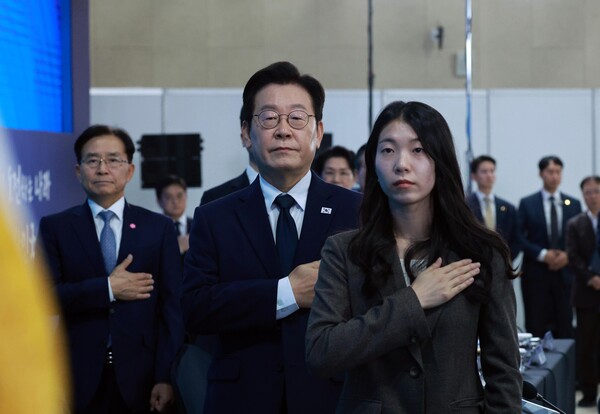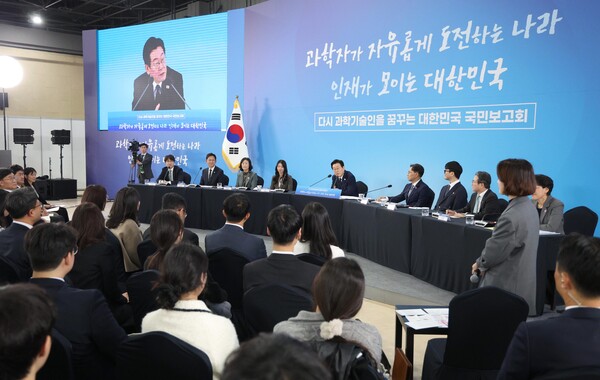At national science policy briefing, Lee calls research investment the key to future competitiveness

South Korean President Lee Jae-myung reaffirmed his commitment to dramatically expanding national research and development (R&D) investment, emphasizing that scientific innovation depends on allowing researchers to take risks and pursue bold challenges.
Speaking at the National Science Policy Public Briefing held at the National Science Museum in Daejeon on the 7th, President Lee stated that the government will not only restore previously reduced R&D funding but will also allocate additional national capacity to research efforts.
“We have increased R&D funding to a level that most people would not have imagined,” Lee said, referring to the government’s proposal to raise next year’s R&D budget by 19.3% to 35.4 trillion KRW — the largest increase in a single year to date.
President Lee noted that South Korea’s rapid rise to advanced-economy status was rooted in its cultural commitment to learning and scientific advancement.
“Previous generations sold farmland and tightened their belts to educate their children. Their determination built today’s Republic of Korea,” he said. “History shows that countries that invest in science flourish, while those that ignore it decline. Governments, companies, and individuals must continue to learn and study to survive the future.”

Lee also addressed what he described as a structural problem in Korea’s research system: an environment where failure is discouraged.
“It is said that the success rate of R&D in Korea exceeds 90%. That is an absurd figure,” he remarked.
“Research is supposed to open new, difficult frontiers. If there is no risk of failure, it is not truly research. Failure must be tolerated for real innovation to emerge.”
Lee referenced the widely discussed case of a KAIST graduate who was removed from the stage after criticizing R&D budget cuts during a commencement ceremony under the previous administration.
“I wanted to see whether the student who was silenced and escorted out could attend this event today,” Lee said. “I can only imagine how unfair and painful that experience must have been. That is precisely what must change.”
President Lee also briefly shared that he had once hoped to become a scientific researcher.
“If my family circumstances had allowed, I might have become a researcher in microbiology or nuclear physics,” he said with a smile. “But life brought me to politics — a battlefield of its own — and I accept that this too is work that must be done.”


